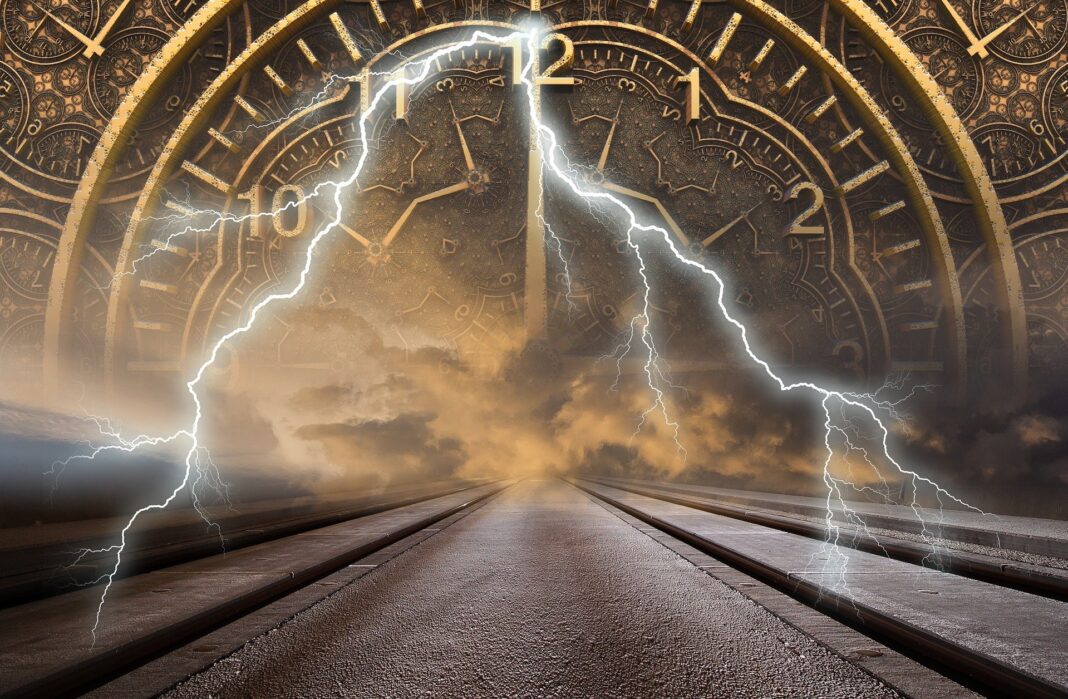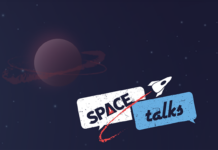In Terry Gilliam’s classic film, “12 Monkeys”, a virus apocalypse almost wiped out the human race in 1997. The few survivors manage to construct a time machine, almost four decades later, in 2035. A prisoner named James Cole (Bruce Willis) is commissioned to go back to 1996 to prevent the catastrophe. How?
The scientists in 2035 recovered a voice-message implying that The Army of the 12 Monkeys was responsible for the spread of the virus. Cole is supposed to give that message to the scientists back in 1996. When he is sent back to the nineties, Cole warns Kathryn Railly of the plague that this organization is about to spread to the world and needs a telephone to leave the message to the scientists. Kathryn Railly tries to call the scientists —out of Cole’s earshot— but it turns out she reached the answering machine of a carpet cleaning company. Anyway, she left the voice-message as a joke with a “have a Merry Christmas” at the end —the same note Cole heard in the future.
The paradoxes of time travel
This is a bootstrap paradox: the message given to Cole is never created —it is always there, in a tragic cycle. A similar inconsistent situation is the grandfather paradox, which would happen if you could go back in time to kill your grandfather before he meets your grandmother, preventing your own existence. But you need to be born to enter the time machine in the first place!
Inconsistencies like these shatter the dream of time travel.
Barak Shoshany, a professor at Brock University, and Jacob Hauser, a graduate student at Perimeter Institute in Canada, recently proposed a simple (toy) model to solve the bootstrap and the grandfather paradoxes. The authors make the time traveler —whose mission is to change the past— come out of the time machine in a different history. No, this is not science fiction; this is theoretical physics.
I have always been fascinated with time travel, and I wanted to understand if it’s just science fiction or if it could be supported by actual science. Some of my peers thought it was a bad idea, and told me I will never get a paper on time travel published, but I actually got two of them published so far, so it looks like my peers were wrong…
professor Shoshany
Physicists’ accounts of paradoxes
Why are physicists worried about paradoxes? After more than a century, General Relativity remains the best theory of gravity; the discovery of gravitational waves recently boosted its reliability. However, the fact that time travel is possible for Einstein’s equations is very controversial.
In 1983, Russian physicist Igor D. Novikov proposed that time travel, instead of violating the laws of nature, would be prevented by the laws of nature to cause inconsistencies in a cyclic history. That means, if you travel back in time to kill your grandfather, the universe will conspire to obstruct your plans, never allowing you to change your fate. A downside of a self-consistent unique history is that it seems too constrained — it eliminates free will.
Changing histories
In their work, published in Physical Review D, Hauser and Shoshany proposed a variation of the Novikov principle to multiple histories, where the traveler has more room for actions.
Their main point is that the traveler will change history in the precise moment they pop out of the time-machine, only by being there. “Additional histories ensure that these changes can occur independently of the time traveler’s original history,” the authors clarified.
In their model, they consider two cases. One of them has an infinite number of histories. In this scenario, the traveler enters the time machine from a history and comes out in another —never visiting a previous one— eliminating the cycles and, consequently, both paradoxes.
The scientists discovered a way to limit the number of histories, enabling the time traveler to go back to a previous one, including the first. In this second scenario, every history needs a start and an exit at a time machine. In this case, the grandfather may survive at least one cycle; and you can be born to kill him in another history.
Professor Shoshany explained enthusiastically:
I was a bit surprised when we found that it is possible to go back to the first history, but then I realized I should have expected that, because it is just the usual Novikov’s conjecture scenario extended to multiple histories. I would say this is the most important discovery we made —that such an extension is possible.
Creating histories
Although Houser and Shoshany’s solutions are idealized models, they are optimistic about the future of their investigation:
We have shown that multiple histories resolve time travel paradoxes, and that this can happen whether there is a finite or infinite number of them. However, the question that still remains is what exactly would be the actual physical mechanism for creating new histories when time travel occurs. I believe this is the most important thing to do next, and if we manage to answer this question, that would be a very interesting discovery.
Houser and Shoshany’s time travel model exists in the realm of mathematical development. Not to mention, we don’t have a time machine (yet). However, suppose we could use their approach. In that case, you could manage to go back in time to another history —maybe where the Covid19 pandemic never happened.
References:
- Hauser, Jacob, and Barak Shoshany. “Time travel paradoxes and multiple histories.” Physical Review D 102.6 (2020): 064062. [OPEN ACCESS, pre-print available here]
- Shoshany, Barak. “Lectures on faster-than-light travel and time travel.” SciPost Physics Lecture Notes (Oct, 2019)





